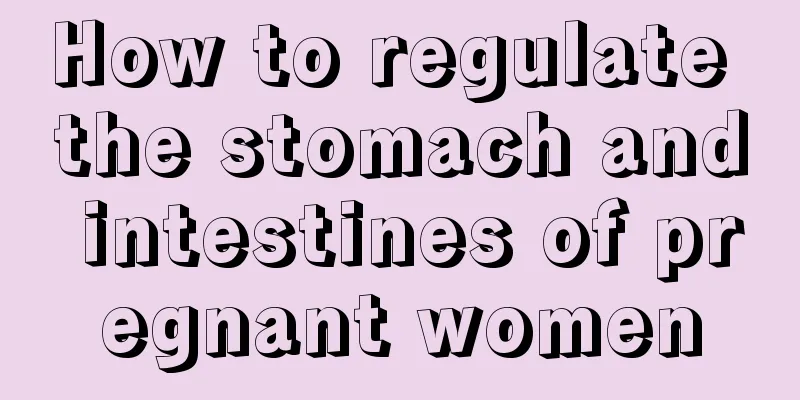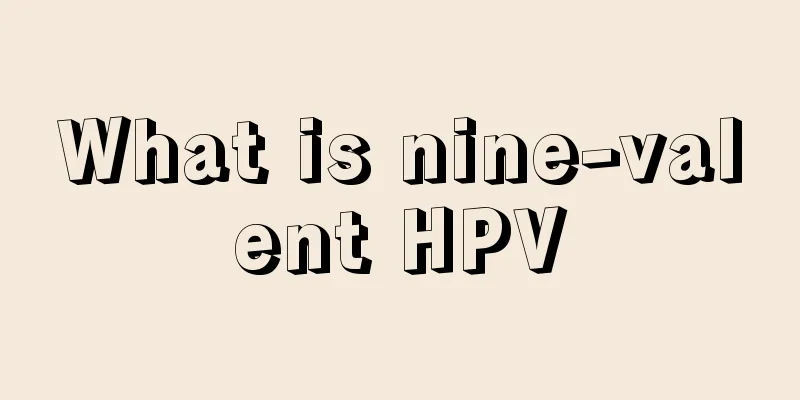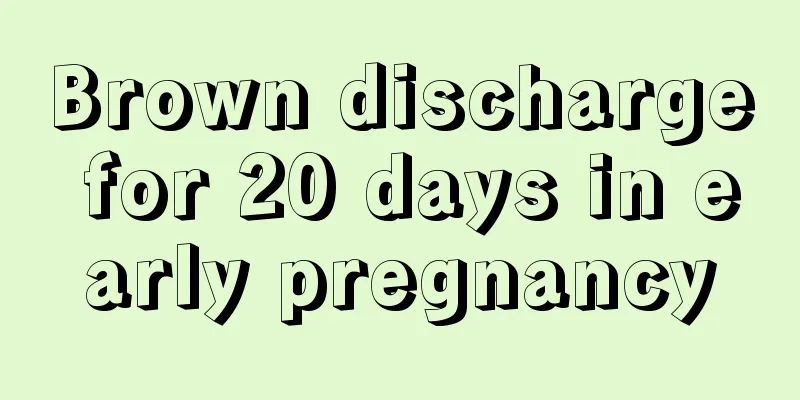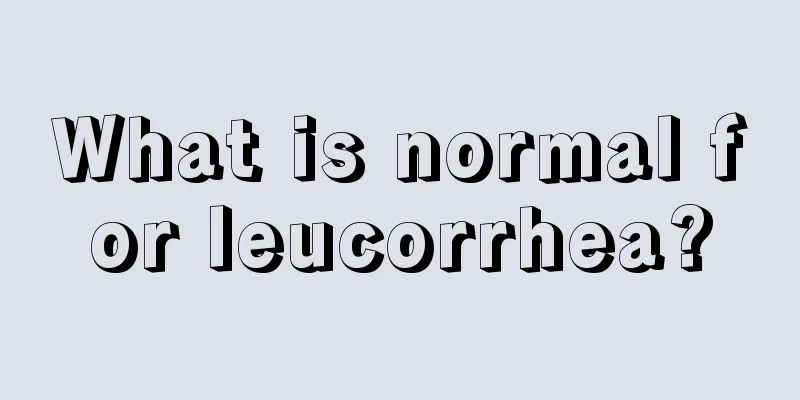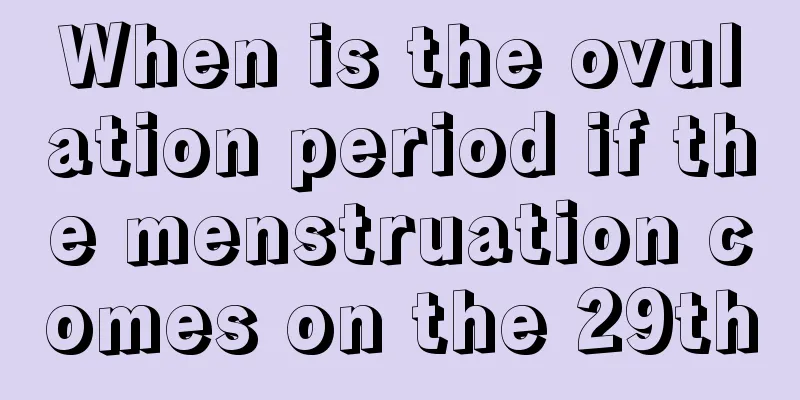Symptoms of iron deficiency during pregnancy
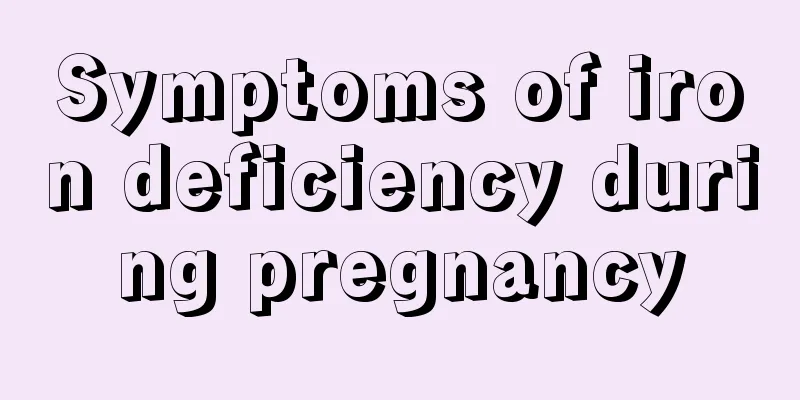
|
During pregnancy, pregnant women need to supplement calcium, magnesium, iron and other elements in addition to folic acid. These elements are indispensable, and the lack of any one of them will directly affect the health of the child and the mother. Iron deficiency in pregnant women can lead to anemia. Once anemia occurs, malnutrition will occur and may also lead to heart disease. Therefore, if pregnant women find that they are iron deficient, they should remedy the situation as soon as possible. So what are the symptoms of iron deficiency during pregnancy? 1. When pregnant women suffer from iron deficiency anemia, they usually have sallow or pale complexion, fatigue, loss of appetite, nausea and belching, abdominal distension and diarrhea, and difficulty swallowing. Dizziness, tinnitus, and even fainting, shortness of breath, palpitations and discomfort after the slightest activity. 2. Physical signs: People with long-term illness may have wrinkled, rough, and ingrown nails, dry skin, and dry and falling hair. Tachycardia, strong heart beats, and a systolic murmur can be heard at the apex or pulmonary valve area. Severe anemia can lead to congestive heart failure and edema may also occur. There may also be glossitis and chapped corners of the mouth. 3. Common complications: Severe and persistent anemia can lead to anemic heart disease and even heart failure. Sometimes a pregnant woman does have anemia but may not experience any symptoms, especially if the anemia is mild. When pregnant women have more severe anemia, they may feel tired, weak, or dizzy. Of course, many pregnant women may experience these symptoms of anemia regardless of whether they are anemic or not. At the same time, pregnant women may find that their skin becomes less red, especially their fingernails, lower eyelids and lips, and they may experience a faster heartbeat, palpitations, shortness of breath or difficulty concentrating. Tips The cycle of iron supplementation through food is relatively long and the absorption is slow. If you want to supplement iron better, it is best to combine it with iron supplements to supplement iron faster and more effectively. Pregnant women can directly take iron supplements such as Iron Edge tablets, which are mild and well-absorbed. They can directly supplement iron and high-quality protein and quickly improve iron deficiency anemia. Even if you do not suffer from anemia during pregnancy, pregnant women can still take Iron to improve their body resistance and prevent anemia in the later stages from leading to fetal maldevelopment, heavy bleeding, slow postpartum recovery and other problems. |
<<: My butt hurts so much during pregnancy that I can't walk
>>: What to supplement every month during pregnancy
Recommend
How long is normal for postpartum lochia to be discharged?
Many women who have experienced childbirth know t...
Is HPV66 positive serious?
Since finding HPV positive during routine physica...
Why do pregnant women urinate more
Because of pregnancy, the bladder of pregnant wom...
What is the origin of borscht? How to make borscht
Borscht often appears in Western and Eastern Euro...
Can I eat watermelon when I have my period?
Women's menstruation is very regular, of cour...
What does Jerusalem artichoke look like? How to eat Jerusalem artichoke
Jerusalem artichokes are a must-have seasoning in...
What to do when your belly is bloated during pregnancy
Pregnant women always feel hungry, so they eat a ...
Why do my feet often go numb when I sleep?
Numbness in the feet when sleeping may be related...
How much harm does abortion do to women one month into pregnancy?
For women, if you are really not ready, you need ...
How long after menopause can I have an abortion?
Many women have to go to the hospital for abortio...
How long does it take to recover from back pain after a normal birth?
The body needs time to recover after a normal bir...
What should I do if I have only a little brown discharge during my period?
As a woman, I believe many people have a deep und...
I am not pregnant but I am always nauseous
Many women will have pregnancy reactions in the e...
Mom, I'm not being hypocritical, I'm just sick...
How much do you know about teenage depression? &q...
What happened to those who skipped dinner for a long time? I hope you don’t have these consequences!
Expert of this article: Liu Jingjing, PhD in Food...
